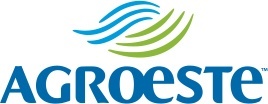Cholesterol is a type of lipid, or fat, that is crucial for the correct performance of our cells. It is generated by our body and likewise obtained from the foods we eat. While cholesterol plays vital duties in hormonal agent manufacturing and cell membrane framework, high levels of cholesterol in the blood can position wellness risks.
When we speak about cholesterol, we commonly read about 2 kinds: LDL (low-density lipoprotein) cholesterol and HDL (high-density lipoprotein) cholesterol. LDL cholesterol is commonly described as “bad” cholesterol because it can build up in the arteries as well as bring about heart disease. On the other hand, HDL cholesterol is called “great” cholesterol due to the fact that it assists remove excess cholesterol from the blood stream.
The Duty of Non-HDL Cholesterol
Non-HDL cholesterol is a calculated worth that includes all types of cholesterol other than HDL. It is taken into consideration a more thorough cardiobalance amazon measure of a person’s cardio risk than LDL cholesterol alone. Non-HDL cholesterol consists of LDL cholesterol, very-low-density lipoprotein (VLDL) cholesterol, and various other lipoprotein remnants that can add to the growth of plaque in the arteries.
Determining non-HDL cholesterol offers a more clear picture of the overall cholesterol content in the blood, including both the LDL as well as non-LDL parts. This is considerable because both LDL cholesterol as well as various other lipoproteins add to the formation of fatty down payments in the arteries, which can ultimately result in atherosclerosis and boost the risk of heart disease.
By examining non-HDL cholesterol levels, healthcare professionals uromexil forte v lekarni have the ability to examine the general threat of developing cardiovascular disease and also guide treatment choices. Decreasing non-HDL cholesterol levels is a vital target for individuals with elevated levels, specifically those with a background of heart problem or several risk factors.
- High Non-HDL Cholesterol and Cardiovascular Danger
Researches have consistently shown a solid organization in between high degrees of non-HDL cholesterol and enhanced cardiovascular danger. Research recommends that non-HDL cholesterol is a much better forecaster of heart problem danger than LDL cholesterol alone. It includes all the cholesterol material that adds to the progression of atherosclerosis, including LDL cholesterol and various other cholesterol-rich particles.
Elevated non-HDL cholesterol degrees are specifically concerning in individuals with various other danger variables such as smoking, diabetes mellitus, high blood pressure, weight problems, or a family members background of cardiovascular disease. Evaluating and taking care of non-HDL cholesterol degrees is vital in these cases to lower the danger of cardiovascular disease, strokes, and also various other cardio events.
Therapy and Monitoring of Non-HDL Cholesterol
Decreasing non-HDL cholesterol can dramatically minimize the risk of cardiovascular disease. Way of living adjustments such as adopting a heart-healthy diet plan, taking part in regular exercise, preserving a healthy and balanced weight, and giving up smoking are key elements of handling non-HDL cholesterol degrees.
In addition to way of living adjustments, healthcare professionals might likewise recommend drugs to help lower non-HDL cholesterol. Statins, a course of medicines that inhibit cholesterol manufacturing in the liver, are commonly recommended to individuals with high non-HDL cholesterol degrees. Various other medicines, such as ezetimibe, fibrates, and PCSK9 preventions, may be recommended in details situations to better minimize non-HDL cholesterol degrees.
- Keeping Track Of Non-HDL Cholesterol
Regular surveillance of non-HDL cholesterol is essential to examine the performance of way of life alterations and medications in taking care of cardio threat. Medical care specialists might advise regular blood tests to gauge non-HDL cholesterol degrees as well as make essential changes to the treatment strategy based upon the outcomes.
It is important to note that non-HDL cholesterol ought to not be watched alone. It should be examined alongside other lipid specifications such as LDL cholesterol, HDL cholesterol, and also triglycerides to obtain an extensive understanding of an individual’s lipid profile.
Final thought
Non-HDL cholesterol is an useful indication of cardio risk as it includes all kinds of cholesterol other than HDL. Elevated non-HDL cholesterol levels are related to an increased threat of heart disease and call for proper management via way of living alterations as well as, if necessary, drug. Routine monitoring of non-HDL cholesterol degrees is vital in evaluating therapy efficiency and lowering the risk of cardiovascular events.
